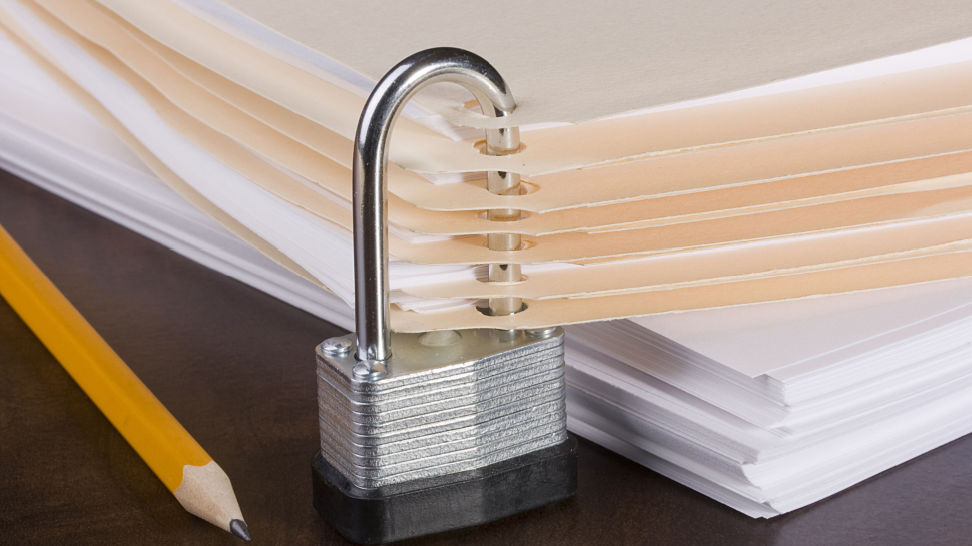For decades, Switzerland has been the gold standard for offshore banking and asset protection. Although movies and books often portray Swiss banks as offshore havens for tax evaders, that’s not exactly true. In fact, the laws regarding Swiss banks have changed dramatically in the last decade. However, opening a Swiss bank account could be an excellent solution if you’re considering offshore banking to help protect your assets.
In this post, Blake Harris Law discusses the Swiss banking sector, including its history, basic information, the benefits of offshore banking, how to open an account as a foreigner, and all the essential details you need to know.
At our firm, we help clients all over the United States with effective asset management and protection, including offshore banking and trusts. Are you interested in learning more? Read on as we explain the fundamentals of the Swiss banking system and how you can use it to protect your assets.
What is Swiss Banking?
Swiss banking refers to the practice of opening a bank account in Switzerland, a country renowned for its financial stability, privacy laws, and secure banking system. Swiss banks are globally recognized for offering comprehensive asset protection, diverse investment options, and strong financial security.
Although Swiss banking is no longer entirely anonymous due to international regulations, it remains a popular choice for individuals seeking to diversify their wealth or protect assets from economic or political instability.
Swiss banks are well-regulated, and they provide both personal and corporate banking services. With a strong emphasis on privacy and asset protection, they also offer services like wealth management and investment solutions.
A Brief History of Swiss Banks
Swiss banking secrecy has a long history, dating back to 1713 when the Great Council of Geneva passed a federal act that required bankers to maintain a register of all their clients and forbade them from disclosing this information, except under specific conditions.
In 1934, Switzerland signed the Banking Act, which made it a crime for Swiss bankers to reveal client identities to foreign governments. This law helped establish Swiss banks as a preferred choice for individuals seeking to hide assets, including for tax evasion purposes.
However, Swiss banking secrecy began to change in the 21st century. In 2013, the Swiss bank Wegelin & Co. pleaded guilty to aiding U.S. tax evaders, prompting changes in Swiss banking regulations. This led to Switzerland adopting international measures to comply with the U.S. Foreign Account Tax Compliance Act (FATCA) in 2010, which requires global banks to report account information of U.S. citizens to the U.S. government.
Despite these changes, Swiss law has maintained certain aspects of banking secrecy, strengthening the 1934 Banking Act in 2015.
A significant blow to Swiss banking secrecy came in February 2022, when the “Suisse Secrets” leak exposed over 18,000 Credit Suisse accounts. A whistleblower provided the leaked data to the Munich-based newspaper Süddeutsche Zeitung, which sparked an international journalistic investigation.
While Swiss banks no longer guarantee absolute secrecy for clients seeking to evade taxes, they continue to offer strong asset protection and privacy benefits for foreign clients.
Do Swiss Banks Disclose Information to Tax Authorities?

The first question people ask about offshore banking in European countries like Switzerland is always regarding secrecy laws. So, do most Swiss banks share information with foreign tax authorities? Well, it depends on the country of residence of the account holder. However, the Swiss Bankers Association has made the automatic exchange of information a commonplace regulation, essentially ending the era of Swiss banking secrecy for foreign customers.
Here is a summary of Swiss banking law regarding secrecy and disclosure of banking information for foreigners with Swiss bank accounts who are not tax residents:
For bank clients residing in a country that follows the automatic exchange of information agreement, Swiss banks will disclose details regarding the holders’ money and bank accounts to the Swiss Federal Tax Administration (SFTA). Then, the SFTA will submit the banking information to the tax authority in the country where the account holder is a legal tax resident.
Are There Exceptions to the Swiss Banking Secrecy Laws?
Yes, several exceptions do exist to the banking secrecy laws in Switzerland, including:
- When banks suspect a client is participating in money laundering
- When creditors seize assets and money to pay off debts, banks will relay information about the account holder’s available funds and balances
- When the Swiss court requires a bank to disclose a customer’s information to provide proof of wrongdoing as it relates to a case
The Benefits of Swiss Banking Services

Opening an account with a financial institution like Credit Suisse or Swiss National Bank (the central bank in Switzerland) can provide many benefits for foreigners, even if the country’s banking secrecy laws aren’t as bulletproof as they once were. For entrepreneurs, companies, wealthy individuals, and new businesses, private banking in Switzerland is an excellent strategy to protect their money and growing assets.
Consider these benefits of opening a Swiss bank account:
Identity Protection
Swiss bankers cannot disclose information about their clients without clear evidence of wrongdoing or strong legal reasons (like evidence of tax evasion or money laundering). Therefore, foreign banking clients have a much better chance of remaining anonymous and private than they would by opening a bank account in the U.S.
The Swiss Economy Is Strong
The Swiss Franc is one of the strongest forms of currency in the world, contributing to the financial stability of the country’s national economy. Furthermore, the Franc has almost no inflation and a 40% backing of gold reserves. As such, it entices many foreigners from both established and developing countries who want a stable place to grow their wealth.
Financial Protection
In terms of asset protection, Swiss bank accounts provide unparalleled advantages. Unlike many other big banks in the European Union and around the world, the Swiss require all accounts to have full insurance. Therefore, your money has comprehensive protection from events like tornadoes, fires, floods, etc. Should they occur, you would receive complete compensation for your missing assets.
How Can You Open a Swiss Bank Account?

Opening a bank account in Switzerland as a foreigner is a complex process. It requires more than just signing a legal form and depositing money. In fact, many foreign applicants are unsuccessful in their efforts.
Step 1: Choose a Swiss Bank
Select the Swiss bank that best suits your needs. Take time to explore the different options available and consider factors like customer service, digital tools, and account features to find the right fit for you. Be sure to review each institution’s offerings carefully to ensure they align with your financial goals and preferences.
Step 2: Gather Required Documentation
Swiss banks are known for their strict Know Your Customer (KYC) regulations. To open an account, you’ll need to provide the following documents:
- Valid Passport: A government-issued ID to verify your identity.
- Proof of Address: Recent utility bills or bank statements showing your current address.
- Source of Funds: Documentation that proves the origin of your funds, such as tax returns, employment contracts, or business agreements.
Step 3: Complete the Application
Once you have selected your bank and gathered your documents, you’ll need to complete the application form. Some banks allow you to apply online, while others may require an in-person meeting with a banker.
Be prepared to provide personal and financial information, as well as details about your intended use of the account.
Step 4: Undergo a Background Check
Swiss banks perform background checks to ensure compliance with anti-money laundering (AML) regulations. During this step, the bank will assess whether you have any criminal history or financial irregularities. This process can take several weeks, depending on the bank.
Step 5: Meet Minimum Deposit Requirements
Swiss banks typically have a minimum deposit requirement to open an account. These requirements vary by bank and account type. The range of Swiss banks may range from $500,000 to $1 million. Make sure you are ready to meet this requirement.
Step 6: Wait for Approval
Once you’ve submitted all your documents and completed the necessary steps, the bank will review your application. This can take several weeks. If everything checks out, you’ll receive your account details, including account numbers and access information for online banking.
Step 7: Fund Your Account
After your Swiss bank account is approved, the final step is to fund your account. You can transfer money from another account or deposit cash. Keep in mind that you may be subject to fees for international transfers or currency conversions.
Step 8: Set Up Online Banking (Optional)
Most Swiss banks offer online banking services, allowing you to manage your account remotely. Set up online access to easily track your transactions, make transfers, and manage your assets from anywhere in the world.
Trust Your Assets to Blake Harris Law
At Blake Harris Law, our services exclusively relate to asset protection and management, including offshore banking and estate planning. We help families nationwide protect their assets to ensure a future of financial wellness and stability.
If you’re considering opening a Swiss bank account, we will help you navigate the process from start to finish. Call us at Blake Harris Law today at (833) ASK-BLAKE and schedule your consultation with an asset protection lawyer.
Swiss Banking FAQs
1. What Are the Benefits of Having a Swiss Bank Account?
Swiss bank accounts offer several advantages, including:
- Privacy and Confidentiality: Swiss banks are renowned for their strict privacy laws, ensuring a high level of confidentiality for account holders.
- Financial Stability: Switzerland has a robust economy and its currency, the Swiss Franc, is considered one of the safest in the world.
- Asset Protection: Swiss accounts provide strong asset protection, shielding your wealth from political or economic instability in other countries.
- Currency Diversification: Swiss banks offer accounts in multiple currencies, enabling clients to manage currency risk effectively.
2. Is It Legal to Open a Swiss Bank Account?
Yes, non-residents can legally open a Swiss bank account. However, account holders must comply with their home country’s tax laws and report their accounts where necessary.
3. What Types of Accounts Can I Open With a Swiss Bank?
Swiss banks offer a variety of account types to meet different needs:
- Personal Accounts: Standard accounts for personal use, including checking and savings.
- Corporate Accounts: Designed for businesses, these accounts offer tailored services to meet corporate needs.
- Investment Accounts: Specifically designed for investment purposes, offering access to a range of investment options.
4. What Are the Requirements to Open a Swiss Bank Account?
To open a Swiss bank account, you will generally need the following documentation:
- Identification: A valid passport or government-issued ID.
- Proof of Address: A utility bill or other official documents showing your current address.
- Source of Funds: Documentation to verify the origin of your funds (e.g., tax returns or business contracts).
- Minimum Deposit: Depending on the bank and account type, a minimum deposit of at least USD 500,000 to 750,000 may be required.
- Background Check: Banks may perform thorough background checks to comply with anti-money laundering (AML) regulations.
5. How Do I Open a Swiss Bank Account?
Here’s a step-by-step guide to opening a Swiss bank account:
- Contact a Swiss Bank: Choose a bank such as Credit Suisse, UBS Group, or another reputable Swiss bank.
- Submit Documentation: Provide the required documents including identification, proof of address, and source of funds.
- Complete Application: Fill out the necessary application forms, either online or in person.
- Due Diligence: The bank will conduct due diligence checks in compliance with Swiss regulations.
- Fund the Account: Transfer the required minimum deposit to activate the account.
6. Are Swiss Bank Accounts Completely Anonymous?
No, Swiss bank accounts are not completely anonymous. While Switzerland still offers a high degree of privacy, the country has adopted international transparency standards and participates in the automatic exchange of information (AEOI). Swiss banks must share account information with tax authorities if requested through legal channels.
7. Can I Access My Swiss Bank Account from Abroad?
Yes, most Swiss banks offer online banking, allowing you to manage your account and perform transactions from anywhere in the world.
8. What Are the Costs Associated with a Swiss Bank Account?
Swiss bank accounts typically have the following fees:
- Account Maintenance Fees: Ongoing fees for maintaining the account.
- Transaction Fees: Fees for wire transfers, currency conversions, and other financial transactions.
- Investment Management Fees: If you have an investment account, there may be fees related to portfolio management.
- Minimum Balance Requirements: Some banks require you to maintain a minimum balance, with penalties for falling below this threshold.
9. What Happens If I Fail to Declare My Swiss Bank Account?
Failure to declare a Swiss bank account can lead to severe consequences, including legal penalties, fines, and potential criminal charges. Switzerland has committed to sharing account information with tax authorities under international agreements like the AEOI, which makes it essential to comply with tax reporting requirements.
10. Can a Swiss Bank Account Be Seized by Foreign Governments?
While Swiss law offers strong protection against asset seizure, foreign governments may request the freezing or seizure of assets through legal channels if there is evidence of criminal activity or tax evasion.
11. Is It Difficult to Close a Swiss Bank Account?
Closing a Swiss bank account is relatively simple. You need to notify the bank, settle any outstanding fees, and provide instructions on transferring the remaining balance. The process usually takes only a few days.
12. How Secure Are Swiss Banks?
Swiss banks are known for their high level of security, with stringent regulations and oversight from the Swiss Financial Market Supervisory Authority (FINMA). The Swiss banking system is well-capitalized, and banks are subject to strict risk management and stability measures.
13. Do Swiss Banks Offer Services for U.S. Citizens?
Yes, Swiss banks do offer services to U.S. citizens, though they must comply with the Foreign Account Tax Compliance Act (FATCA), which requires them to report U.S. account holders to the IRS. Some Swiss banks may have additional requirements or restrictions for U.S. clients.
14. Are Debit/Credit Cards Available for Trust Accounts or Personal Accounts?
Debit and credit cards are generally available for personal accounts, though this can vary depending on the specific bank and account type. For trust accounts, it’s typically not recommended to have debit/credit cards, although it may be possible in some cases, depending on the bank’s policies.
15. Which Banks Does Blake Harris Law Recommend?
Blake Harris Law works closely with several reputable Swiss banks to provide clients with the best asset protection services. To receive personalized recommendations based on your needs, contact us directly.




